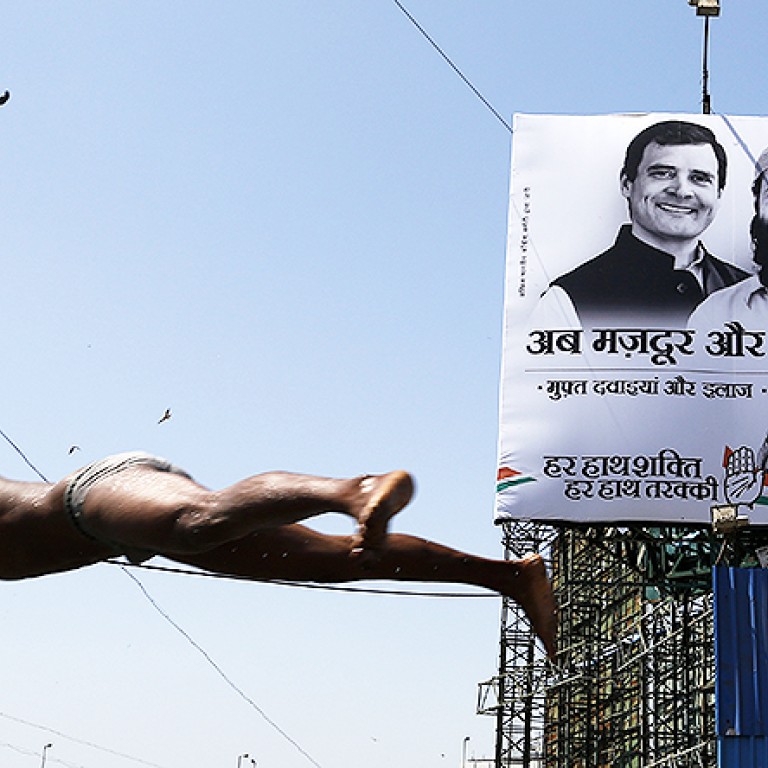
India's election a great democratic show, but where's the substance?
Kevin Rafferty laments lack of real substance to the system, ahead of polls
We are just days away from the start of the greatest democratic show on earth. It is hard to challenge India's claim to be the world's biggest living, breathing dynamic democracy. The 814.5 million Indians eligible to cast their ballots in parliamentary elections at 930,000 polling stations between Monday and May 12 are the proof.
Unfortunately, it is a flawed democracy, too much of a (a show with much singing and dancing) and not enough serious substance. For that, I do not blame the voters: they play their part faithfully enough, but they are forgotten when the results are declared. Politicians regard the voters as unlocking the box of power so that they can help themselves to the riches that come from it.
The is loud and colourful, including noisy rallies and posters proclaiming that their chosen candidate will transform grubby everyday life into a heavenly experience. Trading of insults - with Congress leader Sharad Pawar declaring that opposition candidate Narendra Modi needs mental health treatment for talking rubbish - is reminiscent of Victorian British hustings. There is a profusion of party symbols and - above all - the glorious uncertainty about who is going to win.
The fate of Manmohan Singh's Congress party-led government depends on the way Indians will vote, and most pundits and opinion pollsters believe they will turf out the government. Many big business leaders, both in India and abroad, hope they will choose the Bharatiya Janata Party, led by Modi, in the belief that he has a track record of success and will make India more like China, open for business, dedicated to getting things done.
But both Arvind Kejriwal and his Aam Aadmi Party of the common man against corruption, and the third front of regional parties hope to be more than mere spoilers.
Indians should hold their heads high. This is a truly democratic election, where the result may be predicted by all, but they may all be wrong.
Democratic elections are necessary, but they are not sufficient for a true democracy. This is where India and many other countries fail and fall.
Parliament is a problem, as it is in other countries, in its different ways. In Britain and Japan, the danger to democracy is that the party that wins often has a stable enough majority to do anything it wishes for the next four to five years. India shows the opposite tendency, also seen in the United States, of a parliament limited by querulous conflicting voices that make it difficult to put together or maintain a majority to get anything done. The problem is compounded in both countries by a weak leadership that neither shows vision nor has the political skill or skullduggery to put together majorities for particular causes. It is further exacerbated by self-seeking members of parliament who show no respect for traditional rules of the game.
Spectacularly in India, the third branch of government, the judiciary, works too slowly and proves the adage that justice delayed is justice denied.
The press is another important potential safeguard of democracy, which, sadly in today's India, works less well. These days, too many newspapers and other media have become part of show business, and some have been captured by big business.
The Indian media has forgotten that its principal role should be to support the interests of the common man and to shine its light into dark corners as well as uphold important principles. This lofty role led Thomas Jefferson to proclaim that: "Were it left to me to decide whether we should have a government without newspapers or newspapers without a government, I should not hesitate a moment to prefer the latter." I doubt he would say so in India today.

